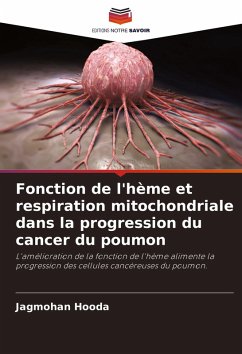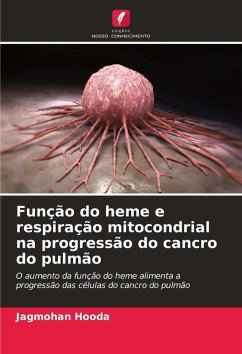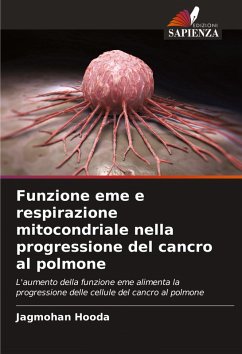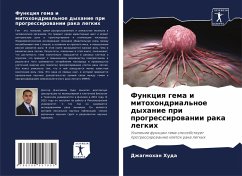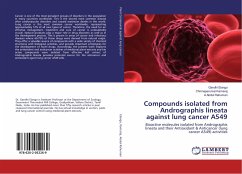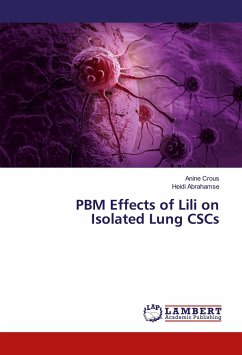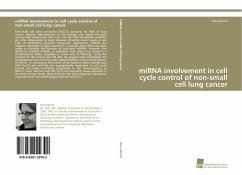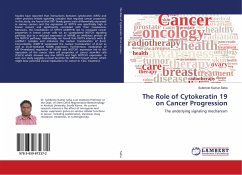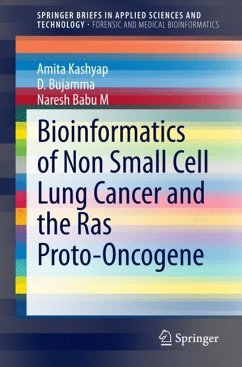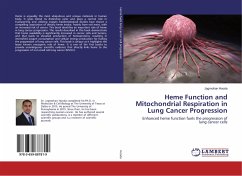
Heme Function and Mitochondrial Respiration in Lung Cancer Progression
Enhanced heme function fuels the progression of lung cancer cells
Versandkostenfrei!
Versandfertig in 6-10 Tagen
36,99 €
inkl. MwSt.

PAYBACK Punkte
18 °P sammeln!
Heme is arguably the most ubiquitous and unique molecule in human body. It gives blood its distinctive color and plays a central role in transporting and utilizing oxygen. Epidemiological studies have shown a compelling association of dietary heme intake, mainly from red meat, with an increased risk of cancer. This book identifies an important role of heme in lung cancer progression. The results described in this book demonstrate that heme availability is significantly increased in cancer cells and tumors, and that leads to elevated production of hemoproteins, resulting in intensified oxygen c...
Heme is arguably the most ubiquitous and unique molecule in human body. It gives blood its distinctive color and plays a central role in transporting and utilizing oxygen. Epidemiological studies have shown a compelling association of dietary heme intake, mainly from red meat, with an increased risk of cancer. This book identifies an important role of heme in lung cancer progression. The results described in this book demonstrate that heme availability is significantly increased in cancer cells and tumors, and that leads to elevated production of hemoproteins, resulting in intensified oxygen consumption and cellular energy production for fueling the progression of lung cancer cells. This book is unique as it highlights the lesser known oncogenic role of heme. It is one of the first books to provide unambiguous scientific evidence that directly links heme to the progression of non-small cell lung cancer (NSCLC).



